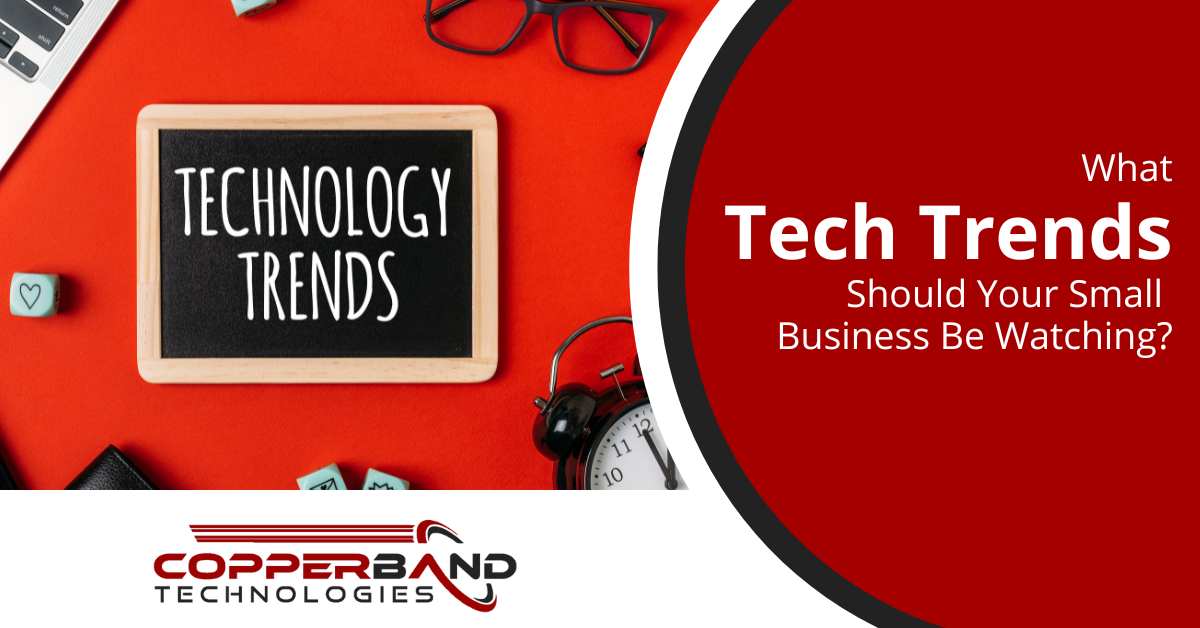What Tech Trends Should Your Small Business Be Watching?

In today’s fast-paced digital age, technology is continuously evolving and transforming the way businesses operate. Small businesses, in particular, need to stay up-to-date with the latest tech trends to remain competitive and leverage new opportunities.
From cloud computing to artificial intelligence, there are several key technological advancements that can significantly impact the success and growth of small businesses.
In this article, we will explore some of the top tech trends that small business owners should be watching, and how they can benefit from embracing these innovations.
Cloud Computing and Remote Work
With the rise of cloud computing, small businesses have been able to streamline their operations and improve productivity. Cloud services offer a cost-effective way to store and access data, collaborate with team members, and scale resources as needed.
Additionally, cloud-based tools enable remote work capabilities, allowing employees to work from anywhere, anytime. This flexibility not only enhances work-life balance but also opens up opportunities for businesses to hire talent from a global pool, reducing geographical limitations.
Artificial Intelligence and Automation
Artificial Intelligence (AI) has become increasingly accessible to small businesses, offering powerful tools to automate processes and enhance decision-making. AI-powered chatbots, for example, can handle customer inquiries, provide instant support, and even assist in sales.
Machine learning algorithms can analyze vast amounts of data to uncover valuable insights. This enables small businesses to make data-driven decisions and improve their overall efficiency. Automation of routine tasks also frees up employees’ time, allowing them to focus on more strategic and creative initiatives.
Internet of Things (IoT)
The Internet of Things (IoT) refers to the network of interconnected devices that can collect and exchange data. Small businesses can leverage IoT technology to improve operational efficiency, gather real-time insights, and enhance customer experiences.
For instance, retailers can use IoT devices to monitor inventory levels, track customer preferences, and offer personalized recommendations. Manufacturers can optimize their supply chain by utilizing IoT sensors to monitor equipment performance and predict maintenance needs. Embracing IoT can help small businesses stay competitive by enabling them to make data-driven decisions and deliver more personalized products or services.
Cybersecurity
As businesses increasingly rely on technology, the need for robust cybersecurity measures becomes critical. Small businesses are particularly vulnerable to cyber threats due to limited resources and expertise.
It is crucial for small business owners to prioritize cybersecurity and implement preventive measures to protect sensitive data and customer information. This includes using secure networks. However, it also includes regularly updating software and systems, implementing strong passwords, and providing employee training on cybersecurity best practices. Investing in cybersecurity solutions can save businesses from potential financial losses and reputational damage resulting from data breaches.
Augmented Reality and Virtual Reality
Augmented Reality (AR) and Virtual Reality (VR) technologies have advanced significantly in recent years, presenting exciting opportunities for small businesses. AR allows users to overlay digital information onto the real world, while VR creates immersive simulated environments.
These technologies can be used to enhance customer experiences, showcase products or services, and even train employees remotely. For example, a furniture store can use AR to let customers visualize how a piece of furniture would look in their home before making a purchase. Integrating AR or VR into marketing strategies can create a memorable and engaging brand experience.
Data Analytics and Business Intelligence
Data has become a valuable asset for businesses of all sizes, and small businesses are no exception. Business Intelligence and data analytics tools enable small businesses to collect, analyze, and interpret data to gain valuable insights into their operations, customers, and market trends.
By leveraging these insights, small businesses can make informed decisions, identify areas for improvement, and develop targeted marketing strategies. Implementing data analytics tools does not require extensive technical expertise. Many user-friendly platforms are available, making it accessible for small businesses to harness the power of data.
Start Leveraging These Tech Trends Today
Small businesses must stay abreast of the latest tech trends to remain competitive and thrive. Cloud computing, artificial intelligence, IoT, cybersecurity, augmented reality, virtual reality, and data analytics are just a few of the key trends that small business owners should be watching.
Embracing these technologies can streamline operations, enhance customer experiences, and improve overall efficiency. To stay ahead of the curve, small businesses should continuously assess their tech needs, explore relevant trends, and be open to adopting new technologies that align with their business goals.
If you need assistance in implementing these tech trends in your small business or want to learn more about leveraging technology for growth, contact Copperband Technologies today. Our team of experts is ready to help you navigate the ever-changing tech landscape and find the right solutions for your business needs.






